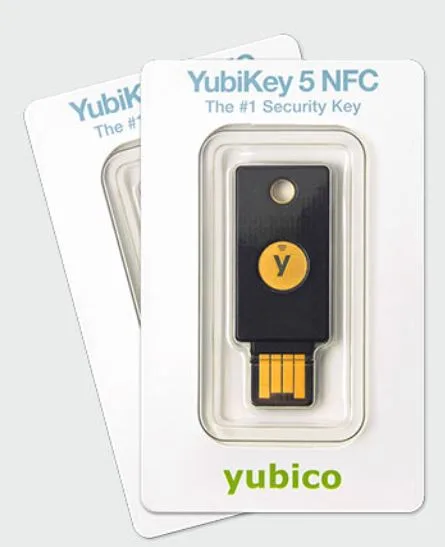Unlock the Mystery of Password Entropy
Explaining Password Entropy
Password entropy is a measure of the strength of a password. It is a way of quantifying the complexity of a password and how difficult it is to guess or crack. Entropy is an important concept in cybersecurity and understanding it can help you create stronger passwords and protect your data.
The concept of password entropy is based on the idea of randomness. The more random characters there are in your password, the higher its entropy and the stronger it is. This means that if you use a mix of uppercase and lowercase letters, numbers, and symbols, you will have a password with higher entropy than if you use a simple word or phrase. However, just using a mix of characters does not guarantee strong entropy. A password cracker can still guess common letter substitutions or patterns in the password, reducing its entropy.
There are different ways to measure password entropy, but the most common metric used is bits of entropy. A password with 128 bits of entropy is considered very strong and would be difficult to crack. One way to increase entropy is to use a longer password. Adding just one character to your password dramatically increases its possible combinations and makes it harder to crack. It is also important to use different passwords for different accounts, and to change them frequently. By taking these steps and understanding the concept of password entropy, you can create strong passwords that protect your online accounts and personal data.
What is Password Entropy, in a nutshell?
Password entropy is a measure of the randomness of a password. It is used to determine the strength of a password and how difficult it is to guess or crack. Entropy is measured in bits, with higher bits indicating a stronger password. The higher the entropy, the more secure the password is.
Why is Password Entropy Important?
Password entropy is important because it helps to ensure that passwords are secure. Passwords are the first line of defense against cyber attacks and having strong passwords is essential for keeping your data safe. Entropy helps to measure the strength of a password and can help you create passwords that are difficult to guess or crack.
Understanding password entropy is important for protecting your online accounts and personal data. Cyber attacks are becoming more sophisticated, and hackers can use automated programs to test enormous numbers of passwords in a short amount of time. A password with low entropy can be easily guessed, making it vulnerable to brute-force attacks. Password entropy provides a measure of how much uncertainty there is in the possible combinations of characters in a password, which is a key factor in its strength against attacks.
By using strong passwords with high entropy, you can take an important step in safeguarding your digital identity. It is also essential to use different passwords for different accounts and to update them periodically. This can help prevent a hacker from gaining access to multiple accounts if they have cracked one password. Additionally, enabling two-factor authentication, such as using a security token or fingerprint ID in addition to a password, can provide an extra layer of protection. By understanding the importance of password entropy and taking steps to strengthen your passwords, you can help secure your online accounts and protect your valuable data.
Password entropy is measured in bits. The higher the number of bits, the more secure the password is. Bits are calculated based on the length of the password and the number of characters used. The longer the password and the more characters used, the higher the entropy.
To calculate the entropy of a password in bits, the formula used is:
Entropy (in bits) = log2 (N^L)
Where N denotes the number of possible characters per character position, and L denotes the length of the password.
For example, let’s consider a password that comprises uppercase and lowercase characters, digits, and symbols. In this case, N would equal 94 (26 uppercase letters + 26 lowercase letters + 10 digits + 32 symbols). If the password is 8 characters long, the entropy would be calculated as:
Entropy (in bits) = log2 (94^8) = 52.95 bits
This means that a password with these characteristics would require at least 2^52.95 (9,007,199,254,740,992) attempts to be guessed or cracked. The higher the entropy, the greater the number of possible passwords, and the harder it is to guess or crack them.
Measuring password entropy in bits can help you understand how strong a password is and how long it would take for someone to crack it. By using this formula, you can estimate the strength of your passwords and take steps to improve them if necessary. Additionally, by using a random password generator, you can create strong passwords with high entropy that are difficult to crack
What Factors Affect Password Entropy?
There are several factors that affect password entropy. These include the length of the password, the number of characters used, and the complexity of the characters used. The longer the password and the more complex the characters used, the higher the entropy.
What is a Good Password Entropy Level?
A good password entropy level is one that is high enough to make it difficult to guess or crack. Generally, passwords should have at least 64 bits of entropy. This means that the password should be at least 8 characters long and contain a mix of upper and lowercase letters, numbers, and special characters.
How to Increase Password Entropy?
The best way to increase password entropy is to use longer passwords and more complex characters. The longer the password, the higher the entropy. Additionally, using a mix of upper and lowercase letters, numbers, and special characters can also help to increase entropy.
What are the Benefits of High Password Entropy?
The benefits of high password entropy are that it makes it more difficult for attackers to guess or crack your password. High entropy passwords are also more secure and can help protect your data from cyber attacks.
What are the Risks of Low Password Entropy?
The risks of low password entropy are that it makes it easier for attackers to guess or crack your password. Low entropy passwords are also less secure and can leave your data vulnerable to cyber attacks.
What Tools Can Help Manage Password Entropy?
There are several tools that can help you manage password entropy. These include password managers, which can help you create and store strong passwords. Additionally, there are also tools that can help you measure the entropy of your passwords.
Unlock the Mystery of Password Entropy!
Password entropy is an important concept in cybersecurity and understanding it can help you create stronger passwords and protect your data. By using longer passwords and more complex characters, you can increase the entropy of your passwords and make them more secure. Additionally, there are tools that can help you measure and manage password entropy. With the right tools and knowledge, you can unlock the mystery of password entropy and protect your data from cyber attacks.
Summing up Password Entropy
Password entropy is an important concept in cybersecurity and understanding it can help you create stronger passwords and protect your data. Entropy is a measure of the randomness of a password and is used to determine the strength of a password. The higher the entropy, the more secure the password is. To increase the entropy of your passwords, use longer passwords and more complex characters. Additionally, there are tools that can help you measure and manage password entropy. With the right tools and knowledge, you can unlock the mystery of password entropy and protect your data from cyber attacks.








